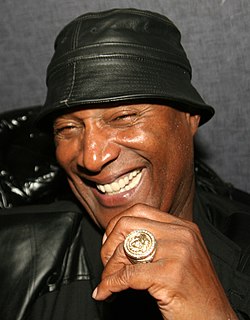A Quote by Wesley Morris
The enormous success of 2009's 'The Blind Side,' in which Sandra Bullock makes a black teenager one of the family, demonstrates that America isn't post-racial. It is thoroughly mired in race - the myths that surround it, the guilt it inspires, the discomfort it causes, the struggle to transcend it.
Related Quotes
We are not post-racial. And in many ways we don't even know how to have a conversation about being post-racial. Until we get out of that old-school way of thinking about race and opportunity and the ability to transcend some of the past of this country, then we're going to be stuck in the 20th-century conversation about race.
Every mind has its particular standard of good and bad, and of right and wrong. This standard is made by what one has experienced through life, by what one has seen or heard; it also depends upon one's belief in a certain religion, one's birth in a certain nation and origin in a certain race. But what can really be called good or bad, right or wrong, is what comforts the mind and what causes it discomfort. It is not true, although it appears so, that it is discomfort that causes wrongdoing. In reality, it is wrongdoing which causes discomfort, and it is right-doing which gives comfort.
Growing up as a black kid with a white father who loves you, who affirms you, who was part of your life is fundamentally different than what black people in my family were subjected to in the 19th century or the 18th century. But unfortunately, it doesn't change the old racial order. I think we need to let the old racial order just stay where it is and not seek to improve upon it. Not try to create more racial categories, because all that does is it makes a race stick around longer.
For black America needs a politics whose first mission isn't the reinforcement of the idea of black America; and a discourse of race that isn't centrally concerned with preserving the idea of race and racial unanimity. We need something we don't yet have: a way of speaking about black poverty that doesn't falsify the reality of black advancement; a way of speaking about black advancement that doesn't distort the enduring realities of black poverty.
The only people who live in a post-black world are four people who live in a little white house on Pennsylvania Avenue. The idea that America is post-racial or post-black because a man I admire, Barack Obama, is president of the United States, is a joke. And I hope no one will even wonder about this crazy fiction again.
Arguably the most important parallel between mass incarceration and Jim Crow is that both have served to define the meaning and significance of race in America. Indeed, a primary function of any racial caste system is to define the meaning of race in its time. Slavery defined what it meant to be black (a slave), and Jim Crow defined what it meant to be black (a second-class citizen). Today mass incarceration defines the meaning of blackness in America: black people, especially black men, are criminals. That is what it means to be black.
What is being black? It's making the most of your life, not taking a single moment for granted. Taking something that's seen as a struggle and making it work for you, or you'll die inside. Not to say that my struggle is like the collective struggle of black America. But maybe my struggle is similar to one black dude's.

































